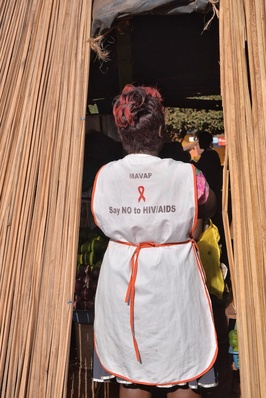Supported by: |
ART Bottlenecks StudyThis study seeks to understand how health and HIV programmes influence the health care-seeking experiences of people living with HIV in Manicaland Province, Zimbabwe. The study has three specific research objectives:
Contact person: Constance Nyamukapa and Morten Skovdal |
Publications |
Church K, Kiweewa F, Dasgupta A, Mwangome M, Mpandaguta E, Gómez-Olivé FX, Oti S, Todd J, Wringe A, Geubbels E, Crampin A, Nakiyingi-Miiro J, Hayashi C, Njage M, Wagner RG, Ario A, Makombe SD, Mugurungi O, Zaba B. A comparative analysis of national HIV policies in six African countries with generalised epidemics: Influences on access to testing, access to treatment and retention in care. Bulletin of the World Health Organisation. 2015; 93:457–467.
|

